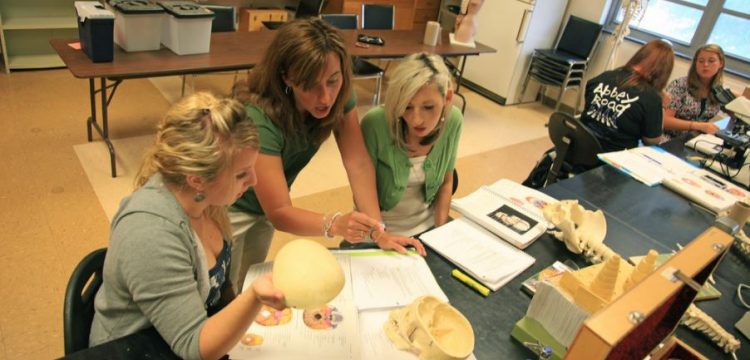Academic freedom is essential to democracy
Patrick Blessinger and Hans de Wit
St. John’s University (NYC), International HETL Association, and Boston College
Since the inception of the first universities nearly a thousand years ago, the freedom to pursue intellectual inquiry has served as a core value for professors, students and educational institutions. Freedom of inquiry became more important during the Renaissance and Reformation periods as well as the Scientific Revolution because of their focus on freedom of thought and critical inquiry.
Following these periods of dramatic change, freedom of inquiry took on greater importance as universities transitioned from scholasticism, which emphasised dialectic reasoning as the main pedagogical approach, to humanism, which emphasised critical thinking and empirical observation.
Since higher education is, by definition, an environment where new knowledge is produced and consumed, it follows that the freedom to engage in intellectual inquiry is essential to the purpose of higher education, to the mission of higher education institutions and to the professional duties of those individuals involved in teaching, learning and research processes.
Without academic freedom, critical thinking cannot be cultivated, and without critical thinking, higher learning cannot be nurtured. Thus, given its centrality to higher learning, it comes as no surprise that academic freedom has been an integral part of higher education since its inception.
Defining academic freedom and institutional autonomy
According to Kemal Gürüz, former president of the Council of Higher Education of Turkey, institutional autonomy and self-governance is the right of universities to decide how best to run their institutions without unreasonable interference (for example, in appointing and promoting academic staff and leadership, in determining admission and graduation requirements, in provisioning curricula and other programmes or services, in defining organisational structures and policies and in allocating various resources).
Academic freedom, on the other hand, is the individual right of professors and students to engage in the production, consumption and dissemination of knowledge without unreasonable restrictions.
The principle of academic freedom is derived from the notion of freedom of thought, which is a basic human right. Academic freedom therefore implies the freedom to teach and the freedom to learn, both of which are central to the proper functioning and purpose of higher education. Given its centrality, academic freedom is widely protected by institutional policies and rules, by collective bargaining agreements and by a long history of academic custom and tradition.
Although all freedoms come with concomitant responsibilities and constraints, with the adoption of the Humboldtian model of higher education (that is, the integration of teaching, learning and research) during the 19th century, the principle of academic freedom has become inviolable. It is through the process of producing and consuming knowledge that educational institutions serve as scholarly communities for intellectual dialogue, discussion and debate.
Furthermore, as a practical matter, academic freedom is essential for inquiry-based learning, which lies at the heart of humanistic and scientific inquiry. Academic freedom is therefore implicit in the ability to generate new knowledge.
For professors, this includes the right to pursue intellectual inquiry related to their field(s) of study and to teach in ways they deem most appropriate to the course and consistent with the core values and mission of the university. For students, this includes the right to form their own conclusions and express their own viewpoints.
Philip Altbach and Hans de Wit, in a contribution to IAU Horizonson academic freedom and institutional autonomy, refer to this principle as the gold standard of academic freedom: the right to teach and publish in their areas of expertise without interference; guarantees of academic freedom for professors speaking or writing on any topic; and protection of free expression on campus for students and others.
Protecting academic freedom and institutional autonomy
Over the years, researchers, scholars and educational leaders have developed a broad set of methods, processes and protocols (for example, research methodologies, peer review processes, professional standards, ethics review boards, institutional policies, accreditation oversight and due process procedures) for maintaining professionalism in teaching, learning and research practices.
As with any ideal, principle or right, academic freedom must also be operationalised for it to be of practical use. To that end, Cary Nelson, president of the American Association of University Professors, provides a practical list of items that academic freedom covers.
Furthermore, UNESCO affirms that “…the right to education, teaching and research can only be fully enjoyed in an atmosphere of academic freedom and autonomy for institutions of higher education and that the open communication of findings, hypotheses and opinions lies at the very heart of higher education and provides the strongest guarantee of the accuracy and objectivity of scholarship and research”.
The UNESCO recommendations support the idea that institutional autonomy is a derivative of the principle of academic freedom. As such, institutional autonomy can be viewed as a form of academic freedom whose justification is derived from the services performed by professors and researchers (that is, freedom to teach) and provided to students (freedom to learn).
The benefits of academic freedom accrue not only to professors, students and institutions but primarily to the broader society through the creation of new knowledge and innovations, and ultimately, through political, economic, social and technological progress. In short, academic freedom serves the common good.
Threats to academic freedom and institutional autonomy
As reported by Brendan O’Malley and Michael Gardner in University World News, many higher education groups and scholars have expressed their concern over recent and current threats to academic freedom and institutional autonomy as well as violations to basic human rights as expressed in the Universal Declaration of Human Rights and the International Covenant on Civil and Political Rights.
Such threats also run counter to basic democratic principles of freedom, equity, fairness and justice.
Other indirect threats include the skyrocketing cost of attending university in some countries, coupled with decreased government funding for higher education. In addition, the rapidly changing higher education environment has created new pressures for those seeking to protect academic freedom and to ensure high academic quality.
That academic freedom and university autonomy are under threat is clear from the contributions to IAU Horizons, as well as many contributions to University World News over the years since its inception up to this, its 500th edition.
At the same time, academic freedom has become more complex due to nationalist-populist trends and the role of social media and ‘fake news’. In an article about tensions between free and offensive speech last year, Peter Scott gives a description of a “more confused, fractured, volatile and ideologically diverse global environment”. Academic freedom in this turmoiled global environment needs continuous attention.
A university is a community of scholars. This community functions best when scholars are free to engage in critical intellectual inquiry, which depends upon academic freedom. Furthermore, universities best serve the common good by directing their efforts towards human progress, and it is within this context that academic freedom plays a vital role in strengthening democratic society.
In the words of Philip Altbach and Hans de Wit: “It is more important than ever to hold on to what the gold standard is about: autonomy of faculty in research, teaching and societal discourse and free expression for students and others in the academic community.”
Patrick Blessinger is an adjunct associate professor of education at St John’s University, New York City, USA, and chief research scientist for the International Higher Education Teaching and Learning Association. Email: [email protected]. Hans de Wit is director of the Center for International Higher Education at Boston College, USA. Email: [email protected].
Suggested Citation:
Blessinger, P. & de Wit, H. (2018). Academic freedom is essential to democracy, Higher Education Tomorrow, Volume 5, Article 4, https://www.patrickblessinger.com/academic-freedom-is-essential-to-democracy
Or
Blessinger, P. & de Wit, H. (2018). Academic freedom is essential to democracy, University World News, http://www.universityworldnews.com/article.php?story=20180404101811251
Copyright © [2018] Patrick Blessinger and Hans de Wit
Disclaimer
Opinions expressed in this article are those of the author, and as such do not necessarily represent the position(s) of other professionals or any institution.




